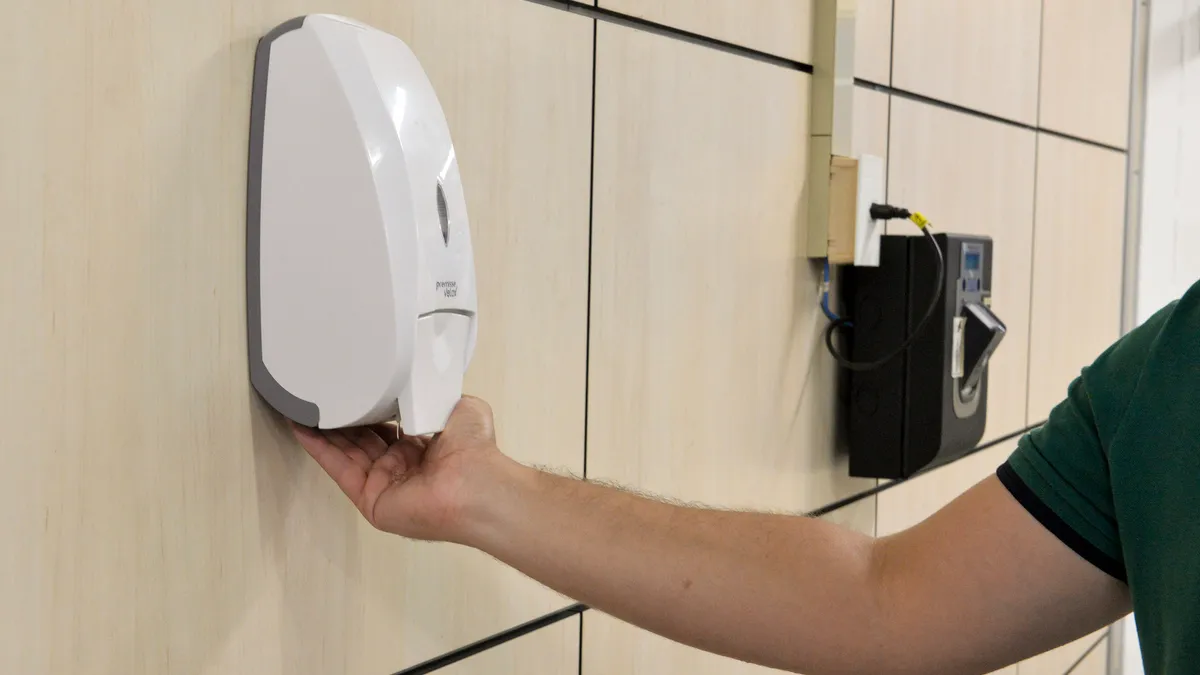Dive Brief:
- The Centers for Disease Control and Prevention (CDC) revised July 20 its guidance for determining when non-hospitalized individuals with COVID-19 may end home isolation — a change that should drive employers to revisit return-to-work policies, according to an employment attorney.
- Under the updated guidance, those with COVID-19 symptoms directed to care for themselves at home may discontinue isolation if: (a) at least 10 days have passed since symptom onset; (b) at least 24 hours have passed since resolution of fever without the use of fever-reducing medications; and (c) other symptoms have improved. Among the changes to previous guidance, CDC reduced the fever resolution component from 72 hours.
- Some with severe illness may require isolation for 20 days after symptom onset, CDC said. Additionally, individuals infected with the virus SARS-CoV-2 but who never develop symptoms of the illness COVID-19 may discontinue isolation and other precautions 10 days after the date of their first positive RT-PCR test for SARS-CoV-2 RNA, per the agency.
Dive Insight:
CDC's guidance for those not requiring hospitalization may be useful to employers in determining whether employees who have COVID-19 may return to work, but the July 20 update is also a reminder that employer policies on the subject cannot be static, Debra Steiner Friedman, labor and employment attorney and member at Cozen O'Connor, told HR Dive in an email.
Employers may, for example, have policies in place requiring employees who test positive for COVID-19 to quarantine from the workplace for 14 days, a timeline previously referenced by the CDC in its guidance for individuals with COVID-19 or who tested positive for the disease. "While that still may be appropriate in many cases, we are learning that this is not a one-size-fits-all rule," Friedman said. "Accordingly, at this time employers should consider policies that allow employees to return to the workplace 10 days after the date of a positive COVID-19 test if they never develop symptoms, and to extend the 14-day standard time away from work if employees need additional time to recover due to severe illness as a result of COVID-19."
Employers also should not require that all employees who are isolating at home have a negative COVID-19 test result as a condition of returning to work, Friedman noted. The U.S. Equal Employment Opportunity Commission (EEOC) has said that employers may choose to administer COVID-19 testing to employees before they enter the workplace, and employers may require a doctor's note certifying fitness for duty, in accordance with the standards of the American with Disabilities Act (ADA). But EEOC also said the law does not allow employers to require workers to submit to a COVID-19 antibody test.
As an alternative or supplement to on-site COVID-19 testing, employers might choose to implement temperature check procedures as well as employee questionnaires, sources previously told HR Dive. Contact tracing systems may also help to maintain worker safety, but some caution that there may be data privacy concerns surrounding the use of such technology.
Testing must also be supplemented by social distancing, sanitation and other procedures ahead of any reopening decision, according to CDC. Employees who have contracted COVID-19, or who have been impacted by school or child care closures as a result of the pandemic, may be eligible for paid leave under the Families First Coronavirus Response Act.














